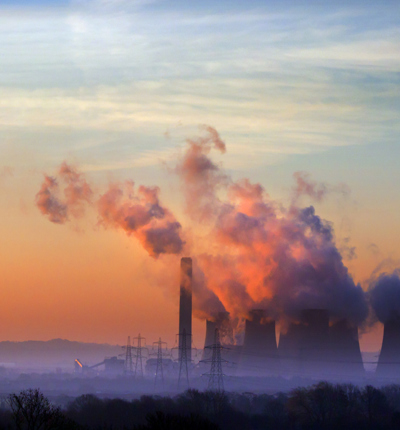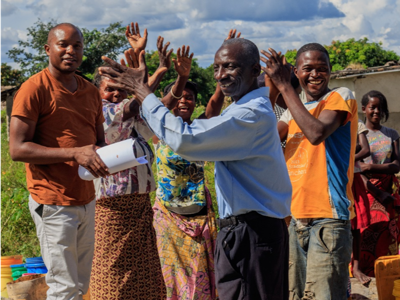
What did we learn from COP26 and what comes next?
Katharina Theil, solicitor and Sarah Gibbons, paralegal both in the international team, discuss key commitments made at the recent UN Climate Change Conference, what comes next and what role corporations have to play in helping challenge climate change.
Posted on 01 December 2021
For two weeks in November 2021 the UK hosted the 26th UN Climate Change Conference of the Parties (COP26). The talks bring together heads of state, climate experts and campaigners to agree coordinated action to tackle climate change.
The Climate Change Conference in December 2015 was a landmark moment for the climate movement. At COP21, the Paris Agreement – an internationally binding treaty on climate change – was adopted by 196 states. Every country agreed to work together to limit global warming to well below 2 degrees, and aim for 1.5 degrees. The agreement dictated that on 5-yearly cycles, countries would update their targets, and COP26 in Glasgow was the first summit in the cycle.
The Glasgow summit was critical; the targets announced in Paris in 2015 would result in warming of well beyond 2 degrees, if not beyond 3 degrees by 2100, and so the agreements this time needed to go much further than they did in 2015. After a fortnight of negotiations, the Glasgow Climate Pact was signed by 197 countries. Commentators have given the pact mixed reviews. One of the most promising commitments to phase out coal was changed to the weaker ‘phase down’ following pressure from India. Although coal and fossil fuel subsidies are mentioned explicitly for the first time in a UN climate agreement, the pledges do not go far enough to limit temperature rise to 1.5 degrees.
Key takeaways from COP26
On the second day of the negotiations, more than 100 world leaders promised to end and reverse deforestation by 2030. In recognition of the role of forests in balancing greenhouse gas emissions and removal, 28 states also committed to removing deforestation from the global trade of food and products like palm oil, soya and cocoa.
The Glasgow Declaration is not the first agreement of this type. In 2014 the New York Declaration on Forests committed to the more ambitious (but subsequently missed) target of halving deforestation by 2020 and halting it by 2030. In contrast with the Glasgow Declaration, the 2014 agreement lacked the pledges of Russia and Indonesia, which did sign last week, but Indonesia appeared to backtrack just two days later. The declaration has subsequently faced further criticism that it lacks teeth and the financial pledges are meaningless in comparison to the huge sums of investments from banks and financial institutions in industrialised nations like the UK, the US and China in agribusinesses linked to deforestation.
Launched by US President Biden and EU Commission chief Ursula von der Leyen, the pledge makes a global methane reduction target of 30% by 2030. Methane is responsible for a third of current human-driven warming. It is the main ingredient in natural gas and key sources of its emission include leaking oil and gas infrastructure, old coal mines, agriculture and landfill sites. Signatories to the pledge have agreed to take voluntary action to meet the target - estimated to reduce warming by 0.2 degrees. Heralded as the most substantial result of COP26, and the strongest lever to slow climate change over the next 25 years, the pledge has been signed by 105 states. However China, Russia and India, the top three methane emitters, are missing from the list. Methane has a much shorter lifespan than carbon dioxide (CO2), so is seen as the ‘lowest-hanging fruit’ of climate action. However, there is much more CO2 in the atmosphere, and CO2 emissions originate from the same fossil fuel sources as methane. Methane reduction could only be achieved with the significant curbing of fossil fuels, so in reality both will need to be tackled together.
The statement aims to step up the development of clean energy with a commitment from over 40 countries to phase out coal power - in the 2030s for major economies, and the 2040s globally - and includes a deal with South Africa, which currently is a major user of coal, worth US$8.5bn (£6.2bn). It is a key agreement designed for the most polluting fossil fuel, but there are some key weaknesses: (1) the US, China, Australia, India and Russia have so far refused to sign; (2) target dates appear vague given they are to be achieved ‘or as soon as possible thereafter’; and (3) there is no mention of the phasing out of any other fossil fuels, not just in this statement but in the final agreement too.
4. UK's 2050 net-zero financial centre target
At COP26, the current UK Chancellor of the Exchequer, Rishi Sunak, provided an update on the Glasgow Financial Alliance for Net-Zero (GFANZ), launched in April, announcing that the UK is to become the first Net Zero Aligned Financial Centre. GFANZ is a group of over 160 financial institutions who have committed to decarbonising the economy. UK firms and financial institutions will have to set out detailed plans for how they will move to a low-carbon future but the commitments are not mandatory, and firms and their shareholders will be left to decide how their businesses adapt.
Corporations and COP26
Companies are not formally part of the COP meetings yet were represented by over 500 delegates at the Glasgow summit, more than any one single country and better represented than the combined representation of the eight countries who have suffered the greatest climate impacts since 2000, according to a Global Witness analysis.
Nearly half of the members of the FTSE 100 have set net zero goals, but the rhetoric of business-led change and private sector accountability is undermined by the voluntary nature of the initiatives involving big-business. Unregulated carbon offset schemes, which have proliferated over the last years, are often flawed and have been criticised as providing companies with excuses for continued emissions, allowing the likes of Shell to brand a portion of its natural gas as ‘carbon neutral’. Similarly, British Airways says its customers can fly carbon neutral, yet this seems misconceived when in the near-term offsetting of emissions is the aviation industry’s best option for tackling climate change.
After COP26 what comes next?
Climate change has wide ranging impacts that seriously affect livelihoods around the globe and needs to be tackled urgently. There are obvious concerns around the lack of specificity of the pledges and weakened language in the final agreement of COP26 and it remains to be seen what steps are taken to put these into practice. The parties agreed to meet again next year, rather than the usual five-yearly cycle, so COP27 provides a timelier avenue for the evaluation of the pact and pledges.
The ultimate success of COP26 and the ability to limit warming to 1.5 degrees will depend on implementation and what can be done if targets are not met. Whilst under the 2015 Paris Agreement, signatories committed to keep global warming ‘well below’ 2 degrees, how countries decide to do this is up to them. Before COP26, countries were required to submit their plans, known as nationally determined contributions (NDCs), but the language of the agreement on the content of these is vague. The Paris Agreement includes no mandatory targets for individual countries or sectors and no penalty mechanisms on an international level. This position has not changed with the Glasgow Pact. The system is based on multilateralism and states are supposed to cooperate to meet the pledges, for example through climate finance initiatives that direct funding from richer nations to poorer ones. Yet the pledge made by the wealthiest nations at COP15 in Copenhagen, to provide US$100 billion a year to support the least wealthy by 2020 has been pushed to 2022 and the climate finance clauses of the COP26 pledge remained the most contentious.
How can litigation help in the climate fight?
Reputation on the global stage may be one incentive for larger, wealthier states to meet their commitments. Domestically, where legal and political processes have been perceived as inadequate, increasingly individuals have resorted to the courts and climate change-related cases have more than doubled since 2015. A current challenge to The Oil and Gas Authority (OGA) Strategy, which the claimants, represented by Leigh Day, argue, amongst other things, conflicts with the UK’s legal climate obligations, is due to be heard in the London High Court on 8 and 9 December.
The UK is the first major economy to have put a 2050 net zero emissions target into law, representing the UK’s national contribution to the Paris Agreement. Given the important role of businesses in tackling climate change, climate change-related litigation has also targeted companies. The landmark judgment in the Dutch case of Milieudefensie v Shell in May 2021 is one of the most recent examples and was the first time a court found that a corporation had a duty to mitigate climate change.
Consequently, if adequate measures are not forthcoming, governments risk finding themselves forced to defend their decisions not to act in accordance with their international climate commitments, not only at the negotiating table, but also in the court room. As is evident from the growing number of cases against the private sector, where state action is insufficient, litigation is also used as a tool to ensure corporations do their part in the fight against climate change – perhaps with greater impact than the voluntary corporate action otherwise so enthusiastically celebrated at COP26.




